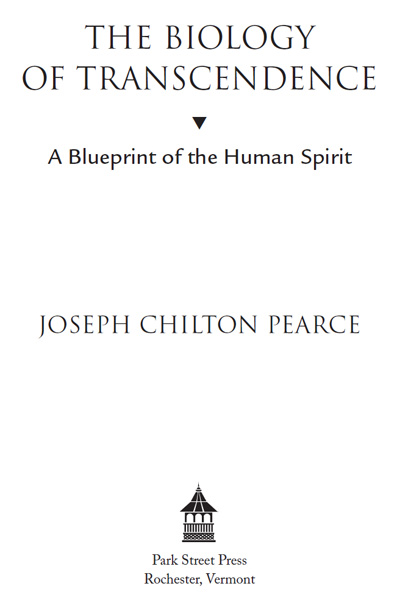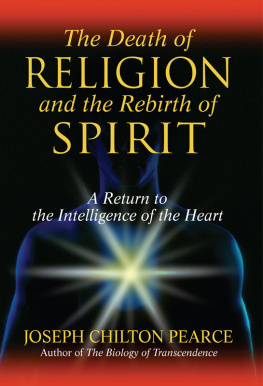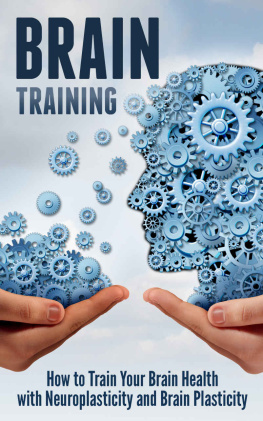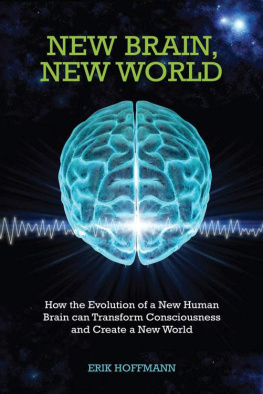
In memory of Lucy Jane Whitehead
O lost and by the wind-grieved ghost
Come back again...
THOMAS WOLFE
ACKNOWLEDGMENTS
W ith gratitude to: Lew Childre and staff of HeartMath Institute for their warm friendship, brilliant research, and trainingI owe them much of the brain-heart information and most of the illustrations and diagrams used in this book; the Siddha Yoga Foundation and my teachers Muktananda and Gurumayi, for giving me an understanding of the heart as only great beings could, as well as years of rich experiences of the heart no science could discover nor books provide; Maria Colavito and Antonio de Nicolas for introducing me to their concept of bioculturalism; Michael Mendizza and his Touch the Future Foundation for long friendship and support; David Spillane for his stimulating mind and endless generosity with books, articles, clippings, and research reports. Thom Hartmann, for his generous help and suggestions, for introducing me to Bear and Company, and for bringing to us Robert Wolffs Original Wisdom (see Epilogue); Keith Buzzell for sharing his insight and understanding, and for his concern for childrens welfare; Bruce Lipton for his brilliance and knowledge, high-spirited generosity, endless energy on our behalf, and for being fun to work with; James P. Carse for his wonderful books that unhinged my comfortable notions time and again; Gil Bailie, for his book Violence Unveiled, which marked a turning point in this book of mine; Cheryl Canfield for her book Profound Healing, and for helping me personally to come to terms with the toll-taking of Father Time; Allan Schore for his monumental work, Affect Regulation and the Origin of Self, from which I have liberally stolen; George Jaidar for his insight into culture and enculturation; Charles Sides and Gregg Korbon for their patient readings and constructive criticisms of several early drafts of this book; Matthew Fox, not only for his books on Eckhart and the Beguines, but especially for Original Blessing, a great testament to the human spirit. Finally, a very special thanks to Elaine Sanborn for her prodigious editing efforts on behalf of this book, a task that would have daunted lesser souls.
INTRODUCTION
L ooking up at the starry sky, poet Walt Whitman asked:
When we become the enfolders of those orbs,
and the pleasures and knowledge of everything in them,
shall we be satisfied then?
And my spirit answered No, we but level that lift
to pass and continue beyond.
The ability to rise and go beyond is the definition of transcendence and the subject explored in the following pages. While this force constitutes our nature and fires our spirit, an honest exploration of it must contend with this counterquestion: Why, with a history so rich in noble ideals and lofty philosophies that reach for the transcendent, do we exhibit such abominable behaviors? Our violence toward ourselves and the planet is an issue that overshadows and makes a mockery of all our high aspirations.
Sat Prem, a French writer transplanted to India following World War II, recently asked this question: Why, after thousands of years of meditation, has human nature not changed one iota? In the same vein, this book asks why, after two thousand years of Bible quoting, proselytizing, praying, hymn singing, cathedral building, witch burning, and missionizing has civilization grown more violent and efficient in mass murder? In exploring the issue of transcendence, we explore by default the issue of our violence. The two are intertwined.
A great being appeared some two millennia ago, looked at our religious institutions with their hierarchies of power, professional classes, policy makers, lawyers, and armies, and observed that we should know them by their fruits. That is, we should ask: What are the actual, tangible results of these lofty religious institutions that we have known throughout history? If we examine them by the fruits they produce, rather than by the creeds, slogans, concepts, and public relations that sustain them, we would see that spiritual transcendence and religion have little in common. In fact, if we look closely, we can see that these two have been the fundamental antagonists in our history, splitting our mind into warring camps.
Neither our violence nor our transcendence is a moral or ethical matter of religion, but rather an issue of biology. We actually contain a built-in ability to rise above restriction, incapacity, or limitation and, as a result of this ability, possess a vital adaptive spirit that we have not yet fully accessed. While this ability can lead us to transcendence, paradoxically it can lead also to violence; our longing for transcendence arises from our intuitive sensing of this adaptive potential and our violence arises from our failure to develop it.
Historically our transcendence has been sidetrackedor derailed altogetherby our projection of these transcendent potentials rather than our development of them. We project when we intuitively recognize a possibility or tendency within ourselves but perceive this as a manifestation or capacity of some person, force, or being outside of ourselves. We seem invariably to project onto each other our negative tendencies (... if it werent for the likes of you... that government... those people...), while we project our transcendent potentials onto principalities and powers out there on cloud nine or onto equally nebulous scientific laws. The transcendence we long for, then, seems the property of forces to which we are subject. Like radar, our projections bounce back on us as powers we must try to placate or with which we must struggle. Perennially our pleas to cloud nine go unheeded, our struggles against principalities and powers are in vain, and we wander in a self-made hall of mirrors, overwhelmed by inaccessible reflections of our own mind. Handed down through millennia, our mythical and religious projections take on a life of their own as the cultural counterfeits of transcendence.
Culture has been defined by anthropologists as a collection of learned survival strategies passed on to our young through teaching and modeling. The following chapters will explore how culture as a body of learned survival strategies shapes our biology and how biology in turn shapes culture. Religious institutions, cloaked as survival strategies for our minds or souls, are the pseudo-sacred handmaidens of culture brought about through our projections of the transcendent aspects of our nature. Thus this trinity of myth, religion, and culture is both the cause and source of our projections. Each element of the trinity brings the other into being and all three interlocking phenomenamyth, religion, and cultureare sustained by the violence they generate within us.
Our greatest fear, the late philosopher Suzanne Langer said, is of a collapse into chaos should our ideation fail us. Culture, as the collected embodiment of our survival ideation, is the mental environment to which we must adapt, the state of mind with which we identify. The nature or character of a culture is colored by the myths and religions that arise within it, and abandoning one myth or religion to embrace another has no effect on culture because it both produces and is produced by these elements.
Science has supposedly supplanted religionbut it has simply become our new religious form and an even more powerful cultural support.
If our current body of knowledge, scientific or religious, is threatened, so are our personal identities, because we are shaped by that body of knowledge. Such threat can lead us to behaviors that run counter to survival. This book explores how our violence arises from our failure to transcend, and how our transcendence is blocked by our violence; how it is that culture is a circular stalemate, a kind of mocking tautology, self-generative and near inviolate. That we are shaped by the culture we create makes it difficult to see that our culture is what must be transcended, which means we must rise above our notions and techniques of survival itself, if we are to survive. Thus the paradox that only as we lose our life do we find it.
Next page




